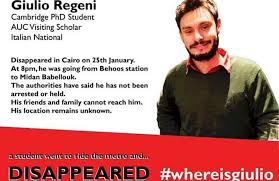Wikileaks published Secretary of State Hillary Clinton’s leaked emails, in an archive of 30,322 emails & email attachments sent to and from Clinton’s private email server while she was Secretary of State. The 50,547 pages of documents span from 30 June 2010 to 12 August 2014.and one of them concerns Egypt in 2011, following the Jan 25 Revolution.
Several cables addressed the Egyptian issue, the most significant and revealing of which is No. C05784516 dated
The email claims to have many sensitive sources but does not name them. However the only named source is former MB parliamentarian Subhi Saleh.
1- Using ElBaradei and trying to control him:
“During a series of meetings over November 21 and November 22, 2011, senior officers of the Egypt’s ruling Supreme Council of the Armed Forces (SCAF) met discreetly with Mohammed el Baradei …These discussions centered on the possibility of el Baradei stepping in as interim Prime Minister in an effort to address the frustration of pro-democracy demonstrators currently clashing with Egyptian Army and Security forces in Cairo’s Tahrir Square. The SCAF officers believe that el Baradei’s record of political independence from the SCAF will allow him to address the concerns of the demonstrators regarding extended military rule.”
2- ElBaradei refused:
“In these discussions el Baradei demanded assurances that he would not be a puppet of the SCAF, with the freedom to name his own cabinet. The SCAF officers indicated that they would have to consider this, but noted that under any circumstances, the SCAF would remain the ultimate authority in Egypt, pending the conclusion in 2012 of a series of national elections beginning on November 28, 2011.”
3- SCAF/MB cooperation:
“The Muslim Brotherhood (MB) in Egypt stated in strict confidence that MB Supreme Guide Mohamed Badie and his advisors maintain a secret and increasingly clandestine relationship with senior advisors to Field Marshall Mohammed Hussein Tantawi and the SCAF, in an effort to establish a relationship that will allow them to cooperate and govern Egypt successfully following the parliamentary and presidential elections scheduled for the fall of 2011.”
4- Funding and type of cooperation: besides funding, the SCAF clearly directed the elections towards the Ikhwan
“The SCAF continues to provide a degree of funding and information to the MB, giving it an advantage over competing secular and religious based political movements. For its part the MB provides intelligence to the SCAF regarding developments in the smaller and more radical political parties. At the same time, the MB, in coordination with the Egyptian General Intelligence Directorate (GID) and Military Police forces, is working to reduce the level of violence in demonstrations protesting extended military rule.”
5- Violence:
“For his part Tantawi has informed the MB leadership that the Army and security forces will use increasingly aggressive measures to counter the demonstrators, and he asks that they step up their efforts to reduce the level of violence among the pro-democracy demonstrators.”
6- Copts: [the document does not specify which attacks but there were several during that period],
“…during recent attacks against the Coptic Christian community in Egypt the MB and the SCAF worked discreetly to ensure that the military and security forces did not intervene forcefully to protect the Copts as they were besieged by Islamist groups. At that time the MB warned that any serious intervention would set off violent demonstrations among the many small and often radical political groups that formed during the uprising against former President Hosni Mubarak. In this discussion Subhi Saleh, a lawyer and former Member of Parliament, who served as the MB delegate to the March 2011 constitutional commission, pointed out that discussions between the MB and the SCAF regarding the Copts had been relatively simple, because both sides were not concerned about the fate of the Coptic Christian”
7- Competition:
“In the opinion of these knowledgeable sources, the MB and the SCAF will continue to work together secretly in an effort to establish a stable government in Egypt. At that point they can be expected to begin competing aggressively with each other for final control of the country.”
While the previous cable is one of the most revealing, there are several ones that show how matters developed after 2011. This is a brief overview of the most significant of those cables:
Cable No. C05789932 dated December 2011, shows Ikhwan trying to balance between creating an Islamic State on the one hand, and not alarming the military on the other.
the FJP and the Salafist al Nour party will reach an understanding that allows them to establish an. Islamic regime. Badie realizes that he must proceed at a reasonable pace, and avoid alarming the senior ranks of the military under the Supreme Council of the Armed Forces (SCAF), or the Western governments in question. However, these MB leaders are now confident that while Field Marshall Mohammed Hussein Tantawi and the senior levels of the SCAF will feel threatened by the establishment of an Islamic government, the rank and file of the army, including members of the officer corps at the rank of major and below will support the new Islamic regime.
There is also a disturbing longer plan created by the Ikhwan regarding their position vis a vis the West:
discreet MB surveys of the officer corps have found that many of the young Army and Air Force officers who have either traveled to the United States for instruction, or trained with American military forces, have returned to Egypt with a deep hostility toward Western society in general, and the culture in the United States in particular. In the opinion of these individuals, while these young officers find the level of democracy in America fascinating, they are hostile to the activities of Christian and Jewish religious organizations, which they believe are the enemies of Islamic thought. These sources believe that Tantawi, his generals and senior colonels are, for the most part, well disposed toward the people and government of the United States. However, they also believe that after the new government takes power in Egypt these senior officers will be in no position to control their troops and will, in short, order be replaced by the current group of captains and majors. These individuals point out that the moderate Islamic government of Turkey has followed a version of this strategy: replacing established, secular generals with younger officers, who support the new regime.)
SCAF’s plan is outlined in Cable No. C05791357 dated December 2011, by weakening liberal and secular forces, the MB was pleased that the SCAF was playing into their hands and that they had a common goal. This paved the way for them to govern in a more ‘orderly’ fashion and help people accept the presence of an ‘Islamic Northeast Africa’:
SCAF commander, Field Marshall Mohammed Hussein Tantawi and his senior staff advisors will begin to remove themselves from the political scene during late 2012 and 2013, to be replaced by the current corps of officers at the rank of major and below, who, along with the rank and file of the army, strongly support the idea of an Islamic state, with a lower level of liaison and cooperation with Israeli security forces. This individual adds that military and security cooperation with the United States and Western Europe will depend on how those countries adapt to the concept of increased Islamic dominance in Northeast Africa. MB polling shows that the junior army officers believe their most valuable future ally will be Turkey.
Negotiations:
Cable No. C05793551 dated January 2012, discusses the formation of an Islamic State in Egypt that is not as strict as the Salafis want it to be because this would raise the ire of the military:
with this victory the MB will now guide Egypt quickly toward becoming an Islamic Republic, albeit one that can work with selected Western governments and firms. This individual believes that the next great challenge for the MB leaders will be avoiding the temptation to overplay their hand by allowing al Nour to pull them toward a stricter interpretation of Islamic Law in the new constitution. In this case they will still face a threat from the military, if any of these steps lead to efforts to take legal action against Field Marshall Mohammed Hussein Tantawi and the other leaders of the SCAF. If they are patient and allow the military to maintain its place in society, the MB will, in the opinion of this individual, be able to count on the support of the rank and file soldiers, who, according to MB polling, strongly support the establishment of an Islamic state.)
In addition, the cable shows how the Ikhwan preferred former head of the Arab League and presidential candidate Amr Moussa to ElBaradei as president because the former would accept a ‘ceremonial role’ and would not challenge the MB. It also mentions that both ElBaradei and Moussa had ties to the MB in the past:
At the same time, according to this source, the MB leaders believe Moussa will be satisfied with a ceremonial role as president and will not challenge the power of the MB controlled parliament. They had been somewhat concerned that El Baradei expected to serve as both head of state and government, which would have posed a problem for the MB. According to this source, El Barradei, like Moussa, had past ties to the MB, but had become personally ambitious during his years at the UN offices in Vienna.)
Cable- No. C05793744, dated Feb 2012, discusses how the Ikhwan wanted to make sure the West supported them in order to balance the power between themselves and the SCAF:
This individual also warned that delegations arriving before the election process is complete in the fall of 2012 will be dealing with both the MB/FJP controlled parliament, and an interim government under the Supreme Council of the Armed Forces (SCAF), under acting head of state Field Marshall Mohammed Hussein Tantawi. This individual did note that if the MB handles this process in an effective manner it will not only help the Egyptian economy, but also discourage any inclination the SCAF may have to interfere in the process. As the U.S. and the other Western powers engage with the MB, it will be more difficult for the military to take action against them in the event of a disagreement as the establishment of the new civilian government moves forward throughout.
On the attacks against NGOs and their alleged ‘funding sources’, cable No. C05794058 dated Feb 2012, reveals that both the Ikhwan and the military saw secular NGOs as threats to their existence, and that training people on democracy was a threat to them:
the recent action by Egyptian security forces and courts against American and other Non-Governmental Organizations (NGO) operating in Egypt were taken after secret discussions between the leadership of the SCAF and the Muslim Brotherhood (MB). In the opinion of this individual the MB, which controls the new parliament through the Freedom and Justice Party (FJP), shares the SCAF concerns regarding the threat posed by training being provided the NGOs to opposition political groups. The MB officials believe that these efforts will only serve to confuse the political situation as Egypt moves toward civilian rule. 2. According to this well informed source, while prosecutors cited violations of Egyptian laws governing fund raising in ordering actions against the NGOs, the true reasons lie in concerns over NGO contacts with secular/liberal political parties and movements. The leaders of both organizations agreed that the deteriorating security situation in Egypt is now complicated by a variety of foreign interests and that the NGOs are the most obvious manifestation of these interests. This individual added that, while the NGOs are popular with the secular/ liberal political parties and movements, they are viewed as dangerous provocateurs by the rank and file of the military, the leaders of the MB, the Freedom and Justice Party (FJP), and, most particularly, by the leaders of the Salafist al-Nour Party.
The Ikhwan therefore approved the attacks on NGOs but wanted the military to take the blame in front of the Western world:
The SCAF and MB officials are particularly concerned over reports that members of these NGOs are training their Egyptian contacts in political techniques used by parliamentary minorities in other countries to press their programs. In the opinion of this individual, the leaders of the MB also believe that the SCAF will absorb most of the international criticism for actions taken against the NGOs. This person added that the SCAF is doing the dirty work, and the MB/FJP/al-Nour coalition will reap the benefits in parliament, where the secular/liberal opposition will miss the support and guidance of the NGOs.)
Forming an unholy alliance against the secular and liberal NGOs without much concern about the suspension of US funding of the military:
once the transition to civilian rule has taken place, the MB will be able to negotiate with the governments of the United States and the other Western powers and resolve differences regarding the activities of western NGOs and businesses in the new, Islamic Egypt. That said, this source repeated the belief that Western NGOs will not be able to promote Western political tactics and practices among Egypt’s opposition parties. This source repeated a point originally expressed by contacts in the SCAF, that these moves against the NGOs are supported by both the SCAF and the MB/al-Nour coalition, adding that any indication that the SCAF was moderating its policies on the NGOs will be met by strong resistance from the MB/FJP/al-Nour parliamentary coalition.)
June 2012 and the Election of Ikhwan’s Morsi:
Announcing the presidential candidate win: In Cable No. C05773985 dated June 2012, the SCAF handed power to the Ikhwan and announced his victory – on condition that the military status within society remains unscathed:
On the evening of June 23, 2012, senior officials attached to the Guidance committee of the Muslim Brotherhood (MB) were called to an emergency, secret meeting with officers of the Supreme Council of the Armed Forces (SCAF). During this session the MB was informed that on the following day Egypt’s Electoral Commission would announce the victory of Mohammed Morsi, the MB/Freedom and Justice Party (MB/FJP) candidate for President of Egypt. The SCAF officers stated that their commander, Field Marshall Mohammed Hussein Tantawi, was concerned that the MB followers, as well as many of the secular/liberal groups were becoming increasingly volatile during the extended vote counting period. The MB representatives, after a call to Supreme Guide Mohammed Badie, assured the SCAF that there would be no violence before the election results were announced. The SCAF officers reiterated their previous position that Tantawi and the SCAF do not want to rule the country, but they will not tolerate any move that limits either their budget, or their position of respect in society. The MB officials, who were extremely happy with the news they had just received, assured their SCAF interlocutors that Badie, Morsi, and the rest of the MB leadership were committed to this position.
In what the US cables call an “Egypt coup” dated June 14, 2012, cable No. C05794746 explains that the said coup is the inter-struggle for power between SCAF and the Ikhwan – with the SCAF making a move that angered Ikhwan, telling them that parliament will be dissolved and that might bring presidential candidate Shafik back:
On the morning of June 14, 2012, senior officials attached to the Guidance committee of the Muslim Brotherhood (MB) held emergency, secret meetings with officers of the Supreme Council of the Armed Forces (SCAF). During this session the MB was informed that Egypt’s Constitutional Court had notified SCAF commander Field Marshall Mohammed Hussein Tantawi that it was preparing to deliver a ruling striking down the regulations governing the late 2011-early 2012 parliamentary elections, which saw the MB’s Freedom and Justice Party (FJP) and the Salafist al Nour party gained control of more than 75 percent of the new Parliament. In addition, the Court ruling blocked attempts by the FJP to enact a law that would have eliminated former Air Force General and Prime Minister Ahmed Shafik from contesting the runoff election for President scheduled for June 16/17. In the opinion of this individual, the Presidential election between Shafik and the MB/FJP candidate Mohamed Morsi, will proceed, but the transfer to a full civilian government will be delayed as Parliament is dissolved and preparations must be made for an election under a new constitution, possibly as late as September 2012.
The reason for this, as the officers explained to the Ikhwan, is that the Ikhwan continued to be heavy-handed:
The officers stated that recent efforts in Parliament to disqualify Shafik for his service as Prime Minister under Mubarak and the increasingly aggressive nature of Morsi’s campaign raised serious questions among Tantawi’s advisors regarding the ability of the MB to protect the military budget, the status of the military in general, and the Army in particular after the transition to civilian rule. They also added that the court made its ruling independent of SCAF interference. The MB officials were skeptical of this claim. The SCAF officers concluded that they were prepared for potential unrest among both MB/FJP/al Nour supporters, as well as secular/liberal groups fearing extended military rule.
Enter General Abdel Fattah Al Sisi
In Cable No. C05795859 , dated August 2012. The then-president Morsi was trying to play the civilian intelligence GIS against the Military Intelligence using the rivalry between them. He thus reached out to the then-chief of MI, Al Sisi as well:
the normally volatile Morsi did not overreact to the military’s efforts to establish their role in the political structure during June 2012. Instead he reached out to younger generals on the SCAF and in Military Intelligence (MI -Mukhabarat el-Khabeya). Morsi went out of his way to build a working relationship with General Abdel Fatah al-Sissi, the then Chief of MI. At the same time he blamed problems in the Sinai, including the ambush and killing of sixteen (16) border police by tribal militants, on the civilian General Intelligence and Security Service (GIS- Al- Mukhabarat al-‘Ammah), long time rivals of the military and ordered a reorganization of that service.
General Sisi’s response was that he would support Morsi with certain conditions – among them not prosecuting Field Marshll Tantawi nor General Sami Anan and maintaining the status of the military in society.
General al- Sissi indicated to Morsi and his advisors that he was prepared to step in and replace Tantawi as the senior military official in the country and take on the role of Minister of Defense. He named General al-Assar as his deputy and told Morsi that he would cooperate in undoing the June proclamations. In return for this support, al-Sissi demanded tangible assurance from Morsi that the Army and its leaders will retain their special, privileged place in Egyptian society. The President also promised to protect Tantawi, his deputy General Sami Anan, and other senior officers from prosecution for corruption or actions taken against demonstrators during the 2012 revolution.
In addition, Morsi wanted to curb the opposition no matter who they were, including within the military and the revolutionaries. He also wanted to maintain good relationships with the US and Israel:
President Mohammed Morsi sees the April 5 ambush of Egyptian border police by dissident tribesmen in the Sinai Peninsula as a turning point for his new government. While the President will remain committed to the idea of Egypt as an Islamic state, he now sees that he must control the violent dissident groups that oppose the government in Cairo, no matter who they might be. At the same time the incident allowed Morsi to deal with the country’s aging and highly politicized military leadership, replacing them with younger generals with good working relationships with the United States, Western Europe, and Israel. Finally, the poor performance of the civilian General Intelligence and Security Service (GIS- Al-Mukhabarat al-‘Ammah) during this period also led him to replace and reorganize its leadership. This source noted that Morsi had seen the GIS as a potential threat to his regime, and feared they might work to undermine his authority. According to this individual, Military Intelligence (MI -Mukhabarat el- Khabeya) is now the dominant security service in Egypt, particularly as its former commander, General Abdel Fatah al-Sissi is now the Minister of Defense and the dominant figure in the national security apparatus.)
In cable No. C05795756 dated September 2012, General Al Sisi perceived a threat by the salafist parties [with whom he is aligned today in 2016 and has been aligned since he came to power]:
A separate sensitive source noted that for his part, al-Sissi is prepared to to have his troops take harsh measures against any demonstrators who attack Western personnel and facilities. The General is also concerned that the al Nour leaders are even more dangerous than Morsi realizes, and he has ordered the MI to increase technical and physical surveillance of these individuals.
When then-president Morsi announced on November 22, a presidential decree that limited the power of the judiciary to rule on the legality of his presidential decrees and with no parliamentary oversight, it raised the concern among both Ikhwan and the military that people would not accept it and that it would lead to violence and demonstrations. This cable cable No. C05796979, dated Nov 2012, shows Sisi’s support of the Ikhwan measures with some reservations:
Egyptian Army commander General Abdel Fatah al-Sissi stated in confidence that prior to President Morsi’s announcement of sweeping presidential powers on November 22, the president asked for assurances that the Egyptian army would support this move. According to a sensitive source, Morsi told al-Sissi that he anticipated a potentially violent reaction from student groups and liberal/secular political organizations that would see the move as an attempt to establish a dictatorship under the auspices of the Muslim Brotherhood (MB). Al-Sissi told Morsi that he Army would support him and if necessary act to maintain public order, but he suggested in the strongest terms that Morsi depend on the national police force to control the demonstrations that developed. Morsi agreed noting that he did not want to use the Army until absolutely necessary. According to this individual, al-Sissi believes that Morsi was confronted with an internal power struggle centered on the lack of progress in the constitutional convention and felt that he had to act.)
According to this cable also, Sisi was unsure about sharing power with Ikhwan amidst public disapproval:
al-Sissi feels that he has cast his lot with Morsi and will continue to support him for the immediate future. But the General is concerned that while Morsi may indeed by acting in good faith at this time he will find absolute power intoxicating and will be reluctant to relinquish authority when the constitution is drafted and the national elections are held in mid — 2013. Al-Sissi and the younger officers who now dominate the Egyptian military are also willing to accept new prosecution of former President Hosni Mubarak and members of his government, with the understanding that Tantawi and other senior Army commanders are not brought to trial. Morsi has assured them that he will honor his commitments to Tantawi made in August 2013 when al-Si ssi and the younger officers took over leadership of the army. Al-Sissi also agrees with Morsi’s contention that many of the national judges were appointed by Mubarak and are not interested in allowing the new president to transform the country into an Islamic state.)
Meanwhile, the US called the Egyptian ambassador in the US to express its concern – Cable No. C05795736, November 25, 2012 regarding Morsi’s assumption of such uncontested powers. In the call sheet, the talking points were:
To express our concern over the decisions and decrees announced by President Morsi November 22, particularly those that give him the power to rule largely by decree until a new parliament is in place. (SBU) Background: President Morsi’s November 22 decree removes judicial oversight of any presidential decisions from the time he assumed power until a constitution and parliament are in place; reopens all investigations into the killing of protestors during the revolution, including new trials for defendants who were previously acquitted (a broadly popular measure, except among the judiciary); declares that the public prosecutor will be appointed by the president for a fixed, four year term; prevents the judiciary from dissolving the Constituent Assembly and the Shura Council and extends the work of the committee drafting the constitution by two months; and authorizes the president to take any measures he sees fit in order to “preserve the revolution.”
This is where the cables end – in 2013, before the complete military takeover by General Al Sisi. This has been a survey of some of the most significant cables from the Clinton emails leaks.















